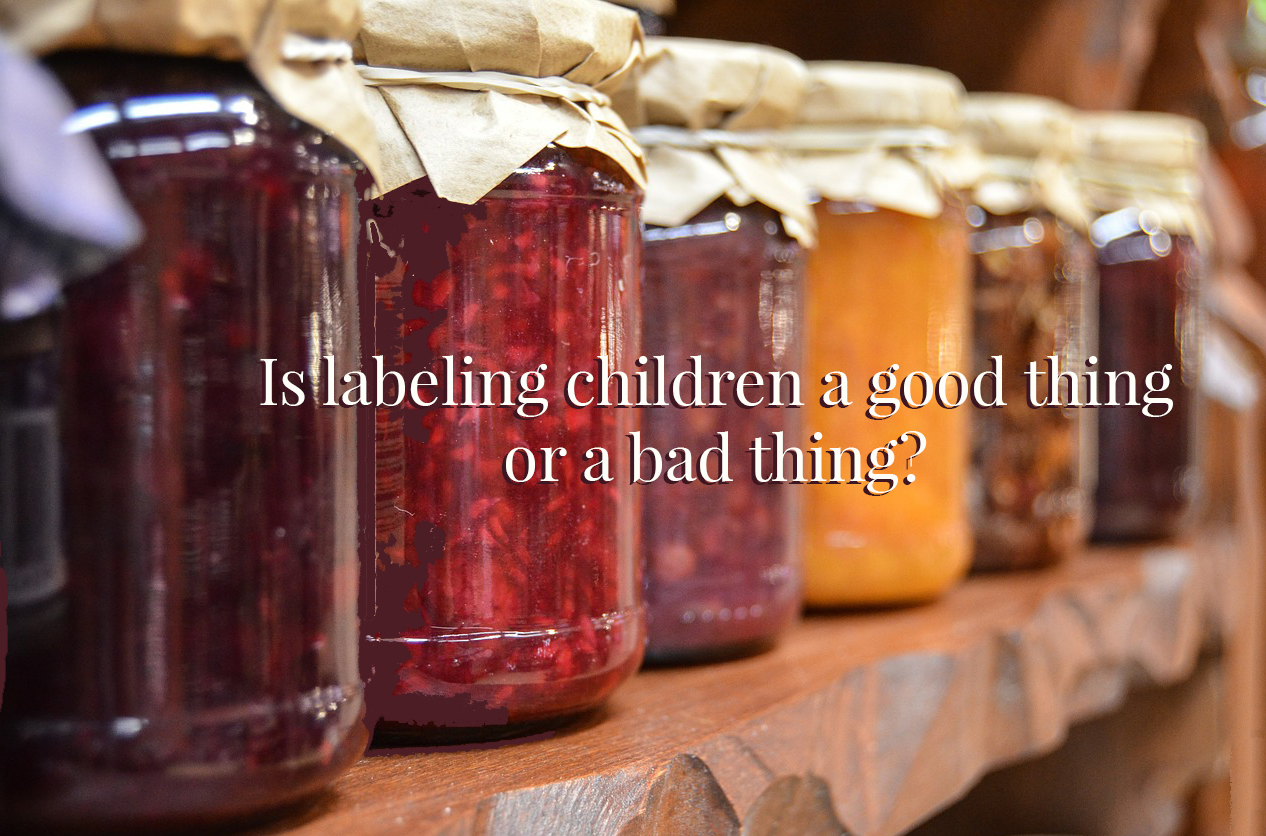To Label or Not To Label Kids with Special Needs

To label or not to label kids with special needs is a dilemma for many parents. Guest blogger Lisa Pelissier takes readers through the pros and cons of labeling, and her son provides a wise and unique perspective regarding the subject.
As the mother of three children with (mostly) invisible disorders, sometimes I wonder if I’ve done the right thing by labeling them: autistic, OCD, selectively mute, bipolar, PANS. The list goes on. I have known people who have shunned labels, trying to avoid the stigma and make their children feel more “normal”. Labels are limits, they say regarding the decision to label or not to label kids with special needs. Who is right?
What are the pros and cons of labeling?
Pros:
1) Labeling is the key to getting services. Without a label, you can’t get the therapy and accommodations your child needs.
2) Labeling helps teachers and others in authority understand why a child is behaving the way they are. It helps them know how to work with the child instead of insisting on a one-size-fits-all behavior policy.
3) Labeling helps neurodivergent children find their peers. For my son, knowing he is autistic has helped him find others who think the way he does.
4) Labeling can be a relief for the child. They already know they’re different. A label can help them understand why and can help them understand that their differences are not personal failings, but medical diagnoses.
5) Labeling arranges kids in larger groups: the autistic, the mentally ill, etc., and larger groups get things like funding, accommodations, and scientific studies.
Cons:
1) A label could limit expectations. If someone has an idea that “autistic people can’t…” then there are some traits they will never be able to see in your child.
2) A label could narrow your view of your child so that the label is the first thing you see. Instead of understanding that your child’s problems may be caused by sin, by personality, or by outside factors, it’s easy to write off misbehavior or other quirks as “just the autism” or “just the anxiety”. (Been there, done that.)
3) Labels focus on deficiencies, not strengths. They point to a child and say, “This is what the problem is.”
4) Some disabilities are stigmatized, especially mental illness. When you mention that your child has depression or anxiety, people assume things—your child lacks faith or they’re not trying hard enough to conquer their problems. And they assume things about your parenting—maybe you’re abusive or neglectful.
I had a long conversation with my autistic son (he does not prefer the person-first language of “my son with autism”) about autism and whether it’s right to label or not to label kids with special needs. His take on it was perfect. He reminded me that there is no such thing as a “label”.
“It’s a diagnosis, Mom. A medical diagnosis.”
Pretending someone doesn’t need a medical diagnosis when there is a problem is the heart of stigmatization. You wouldn’t ignore a label for a child with diabetes or a child with arthritis. Diagnoses of mental illness or neurological problems are the same. The stigma against neurological and mental health conditions relies on the idea that these conditions are character flaws or spiritual deficits, rather than differences in brain chemistry. “Autism,” he said, “isn’t really a problem for me. Neurotypical people who expect me to be just like they are… that’s the problem.”

By Lisa Pelissier
Lisa Pelissier lives in Oregon where she is a homeschooling mother of four (three with disabilities) and author of three middle-grade fiction novels. Lisa owns SneakerBlossom Books, offering Christian, classical homeschool Study Guides and curriculum. She also works as a freelance copy editor, an artist, and a tutor. In her spare time Lisa enjoys playing the piano and fretting about things over which she has no control. Email Lisa at sneakerblossom@yahoo.com or connect on Facebook.
4 Comments
Submit a Comment
Subscribe for Updates from Jolene
Related Posts
Close to the Brokehearted
Guest blogger Karen Wright explains how the phrase “I’d like to buy you coffee” has been her go-to for initiating friendship.
Mending Broken Hearts
Guest blogger Kelly Denham explains how, in the midst of her grief, God proves He is in the business of mending broken hearts.
Special Needs Mom, How Are You Doing this Mother’s Day?
Jolene acknowledges the need to grieve as well as rejoice as she asks, “Special needs Mom, how are you doing this Mother’s Day?”






Well put Lisa. Thanks for clarifying the issue so well!
Regarding labels as an excuse, I believe there is a double standard. No one would deny a child a diagnosis of paralysis or cancer on the grounds that they might use it as an excuse not to excel. Will someone with cancer be able to excel in the way someone without cancer can? In many ways, their disease will limit some of the possibilities–they’re tired and sick and at the doctor a lot. They may not be able to hold a job during the time of their illness. Or a person with paralysis is going to be limited in some ways. They will face hardship because of inaccessibility. They won’t be able to do some sports, or jobs that require lots of physical strength. Everyone has grace for someone with, say cancer or paralysis because it’s very obvious that “doing the best they can” is enough. It’s brilliant. They are playing the hand they were dealt, and everyone respects their achievements.
But with autism or mental illness, the “excuse” factor comes into play. If I get my child this medical diagnosis, he or she won’t be able to achieve their full potential. So it would be better not to get the diagnosis. Because it’s the *diagnosis* that quells potential, not the actual illness. This denies the validity of the diagnosis. If a diagnosis of cancer or paralysis changes our expectations, so must a diagnosis of autism or mental illness. “Full potential” must take into account the diagnosis, just as it would with cancer or paralysis. The child isn’t “not living up to their potential”–they’re not living up to their parents’ dreams of what their child could be before they had their diagnosis. As a culture, we need to come to a place where we accept the validity of neurological and mental health diagnoses, or we will continue to place the additional burden of stigma on the neurodivergent.
Hi Peggy! That’s a good insight. It’s a conundrum. To get needed services, labels are often required. But as you said they can become an excuse. Plus each case is unique and requires an individualized decision. So hard!
Being labelled may be very detrimental to the individual’s self esteem, also. And, with age it may be an excuse for him(her) not to try or excel for he has been labelled so all his life and feels inadequate.